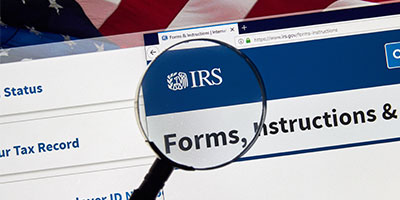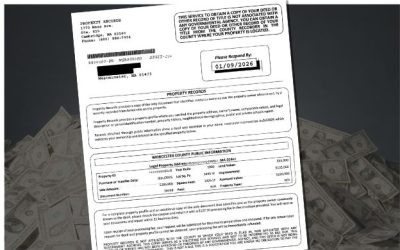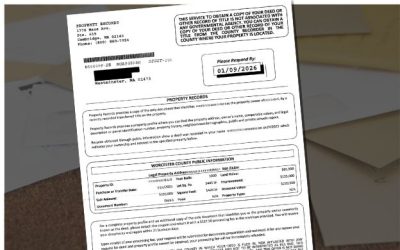
Jun 19, 2025 | Around The Home, Around The Hoome, Artificial intelligence, Buying Real Estate, Chapter 7 Bankruptcy, Consumer Tips, Credit Scoring, Fair Housing, Federal Reserve, FHFA, Financial Crisis, Financial Fraud, Financial Reports, Foreclosure, Happy Thanksgiving, Holidays, Home Building Tips, Home Buyer Tips, Home Buying Tips, Home Care, Home Care Tips, Home Closings, Home Decorating, Home Financing Tips, Home Maintenance, Home Mortgage, Home Mortgage Tips, Home Seller Tips, Home Selling Tips, Home Tips, Home Values, Homebuyer Tips, Homeowner Tips, Housing Analysis, Housing Market, Interesting Stuff, Investment Properties, Legislation, Market Outlook, Mortagage Tips, Mortgage, Mortgage Guidelines, Mortgage Lenders, Mortgage Rates, Mortgage Tips, mortgage-rates-whats-ahead-september-17-2012, News, Organization Tips, Personal Finance, Probate Law, Rankings, Real Estate, Real Estate Agent Information, Real Estate Definitions, Real Estate Tips, Real Estate Trends, Realtors, Selling Real Estate, Selling Your Home, Short Sales, Statistics, Success, Taxes, The Economy, Title Insurance
Whether you’re buying with cash, investing from abroad, transferring property to a family member, or just trying to close without a headache, you’ll want to know what can trigger federal scrutiny — and how to stay off the radar.
From flagged wire transfers and shell companies to gift-of-equity sales and land near military zones, this isn’t your average title-and-keys situation.
It’s real estate with a side of national security, tax enforcement, and financial crime prevention.
Is Big Brother Watching Your Home Sale?
What Buyers and Sellers Should Know About Federal Oversight
You’re Not Paranoid — They Might Actually Be Watching
What you didn’t know on how federal agencies keep tabs on select real estate transactions.
Your Closing Packet Could Be a Federal File
How Your Paper Trail Might Raise Red Flags — And What You Can Do About It
What the FBI, IRS, and Homeland Security
Could See in Your Closing Docs
We’re unpacking what agencies might spot inside your deal’s fine print.
Caught in the Crosshairs? What Triggers Federal Interest in Your Home Sale
The Top Red Flags That Could Invite a Closer Look from Washington
Cash, LLCs, or Land Near a Base? You Might Just Be a Target
The warning signs that put your deal on the government’s radar — and how to stay clear.
Follow the Money: How the IRS Tracks Financial Crimes Through Real Estate
From Unreported Income to Shell Game Schemes
— What IRS-CI Is Looking For
Your Closing Could Be an Audit Trigger — Here’s How the IRS Sees It
Explore the patterns, documents, and loopholes that turn ordinary deals into criminal cases.
Providing title, escrow, closing and settlement services to clients throughout Massachusetts and New Hampshire
“As a realtor, the Rocheford team went above and beyond to make sure my client was not only protected from a legal standpoint but also operated in a timely manner to execute the sale of my client’s dream home.
Thank you for the great experience for myself and my client! Looking forward to our next deal together!”
Realtor®
“I don’t usually use attorneys that often. But if an attorney is needed, I couldn’t recommend this law office enough. I always pride myself on responding quickly to emails and calls, but I was in awe of how fast paralegal Robert Heckman would respond to us. We sold our house a couple months ago and then did a two-part land swap with neighbors and my folks, and both transactions were seamless, including coming in to sign paperwork.
In short, if you need a law office that is responsive and attentive to detail, definitely consider them!”
Leominster, MA
“Excellent, conscientious and professional.
The communication throughout our Real Estate transaction was better than expected. We thought the fee to be very reasonable considering the work accomplished on our behalf. The law office handled the entire closing without us having to be in attendance….as we requested. I have had experience with very competent lawyers and law firms as the result of my previous profession. I would place this law office right up there among the best in their real estate field of expertise and surprisingly at very reasonable and affordable rates/fees.”
Buzzards Bay, MA

Apr 16, 2025 | Consumer Tips, Financial Reports, Home Buyer Tips, Home Buying Tips, Home Financing Tips, Home Mortgage, Home Mortgage Tips, Home Seller Tips, Home Selling Tips
Understanding Transfer Taxes (Tax Stamps) in Massachusetts
When it comes to selling real estate in Massachusetts, one fee tends to catch sellers off guard: transfer taxes, also known as real estate tax stamps. At The Law Office of David R. Rocheford, Jr., P.C., we get a lot of questions about these costs — and we’re here to make sure you (and your clients) understand what to expect.
Who Pays the Transfer Tax in Massachusetts?
In nearly all cases, the seller is responsible for paying the transfer tax. However, during the negotiation process, the parties can agree to split the fee — or shift it entirely to the buyer. Like most things in real estate: it’s all negotiable.
The current transfer tax rate is $2.28 per $500 of the property’s sale price — that’s $4.56 per $1,000. This fee is paid to the state by purchasing tax stamps from the Registry of Deeds when the new deed is recorded.
Example: On a $500,000 home sale, the transfer tax would be $2,280.
You can review current rates and exemptions on the Massachusetts Department of Revenue website.
Not exactly — transfer taxes are not tax-deductible on your income tax return. However, they do get added to the cost basis of the property, which may reduce your capital gains tax when the property is sold in the future.
Some nonprofit organizations and federal agencies are exempt. Veterans Affairs (VA) and HUD transactions, for example, often qualify for exemption — but always confirm with the Registry and your closing attorney.
- The tax applies to any sale over $100.
- The tax is separate from municipal excise taxes or local fees (if applicable).
- The stamps are literally affixed to the deed — old school, but legally required.
Small details. Big difference.
Whether you’re buying or selling, understanding transfer taxes is a small detail that can make a big difference at the closing table. We help our clients plan ahead and avoid last-minute surprises every step of the way.
1234 Divi St. #1000, San Francisco, CA 94220
Copyright © 2026 Divi. All Rights Reserved.
Jul 20, 2023 | Home Financing Tips
 When buying or selling a property, one crucial step in the process is obtaining an appraisal to determine its value. Appraisals provide an objective assessment of a property’s worth, influencing important decisions such as mortgage approvals, negotiations, and even insurance premiums.
When buying or selling a property, one crucial step in the process is obtaining an appraisal to determine its value. Appraisals provide an objective assessment of a property’s worth, influencing important decisions such as mortgage approvals, negotiations, and even insurance premiums.
However, there are instances when the appraisal falls short, causing challenges and uncertainties for both buyers and sellers. In this blog post, we will explore what to do when faced with an insufficient property appraisal and provide some practical steps to navigate this situation.
Understand the Appraisal Process:
Appraisals are typically conducted by licensed professionals who evaluate various factors, such as the property’s condition, location, comparable sales, and market trends. Appraisers use these factors to determine an accurate value for the property.
Review the Appraisal Report:
When you receive the appraisal report and find it insufficient, take the time to thoroughly review it. Look for any errors or discrepancies that may have influenced the final value. Understanding the appraisal’s weaknesses will help you determine your next steps.
Communicate with the Appraiser:
If you spot errors or discrepancies in the appraisal report, it’s crucial to reach out to the appraiser to discuss your concerns. It’s possible that the appraiser overlooked certain aspects or made mistakes that can be rectified through communication.
Gather Additional Evidence:
If you believe the appraisal is still inaccurate after discussing it with the appraiser, gather additional evidence to support your claim. This evidence may include recent comparable sales, property improvements, or any unique features that were overlooked in the initial appraisal. Presenting a compelling case with strong supporting data increases the chances of obtaining a revised appraisal.
Request a Reappraisal:
In some cases, when the appraisal falls significantly short, you can request a reappraisal from the lender. This request should be accompanied by the additional evidence you have gathered. Some lenders may consider a second appraisal if you can demonstrate valid reasons for your request. However, note that not all lenders will agree to a reappraisal, and their policies may vary.
Renegotiate or Seek Alternative Financing:
If a reappraisal is not an option or doesn’t yield satisfactory results, you may need to consider renegotiating the terms of the transaction. Discuss the situation with the other party involved, whether it’s the buyer or seller, and explore alternatives such as adjusting the purchase price or exploring different financing options.
While an insufficient property appraisal can be frustrating and present challenges, it’s important to approach the situation calmly and rationally. Review the appraisal report, communicate with the appraiser, gather additional evidence, and explore options like reappraisal or renegotiation. By taking proactive steps and maintaining open lines of communication, you can navigate through the process and work towards a satisfactory resolution.
Remember, real estate transactions often involve multiple parties, and finding a mutually beneficial solution is key to moving forward successfully.
Aug 15, 2019 | Home Financing Tips, Homeowner Tips, Mortgage Rates, Mortgage Tips
By Karla Lopez
Refinancing a mortgage means you are replacing your existing mortgage or mortgages with a new one that has different, and hopefully, better terms. This new mortgage will pay off your old mortgage loan, and then you become responsible for paying it off. But the question is, when exactly should you do it?
The straightforward answer is whenever you can save money on your current mortgage through refinancing; it’s worth exploring all year-round. Although the old rule of thumb says refinancing is useful if you can get at least one or two percent reduction on the interest rate you’re paying. But, it’s no longer the case now.
Here are the situations when refinancing makes sense.
Mortgage Rates are Going Down
A mortgage is subject to fluctuation because it can be affected by a variety of factors such as market movements, Debt statistics, inflation, U.S. Federal Reserve monetary policy, the economy, and global factors.
Once the mortgage rates nosedive, you’ll be able to save by securing an interest rate that’s lower than what your current loan has. This maneuver is called rate-and-term refinancing wherein you refinance your mortgage for one that usually has the same remaining term but with a lower interest rate.
Again, the traditional rule has it that it’s best to refinance if your rate is one or two percent lower than your existing rate. But in reality, every borrower has different needs and financial goals. A one percent interest rate less may help you save on a $2 million mortgage. However, it’s not going to do much for a $200,000 mortgage.
There are other costs that come with refinancing that are crucial whenever you decide to go its route.
Another situation wherein refinancing can be a good option is when interest rates are anticipated to fall continuously, and you have a fixed-rate mortgage. In such a case, you might consider turning to ARM (Adjustable-Rate Mortgage.)
With an ARM, the interest rate will change over time, typically in relation to an index, which makes it possible for your payments to go up and down. It will make more sense to convert to an ARM if you plan to move in a few years. It owes to the fact that you’re going to forgo the safety of a fixed-rate loan.
Take note also that your ARM will go up too if interest rates increase. Additionally, the initial rate you acquire with an ARM will be effective for a limited period which could range from one month up to five years or more.
The Value of Your Home Increases
Refinancing could be your lifeline if your home’s value has gone up, particularly if you’re still paying off other high-interest debts.
When you refinance, you get to take a new loan that’s bigger than your previous one. You will use this new mortgage to settle the first loan, then you’ll get the difference in cash. This system makes it an excellent alternative to a home equity loan.
For example, you took a $160,000 mortgage five years ago for a house worth $200,000 house. You also put a $40,000 down payment. After a series of regular payments, your debt on a mortgage has now reduced to $100,000. When the property market skyrockets, so do your home whose value now amounts to $250,000.
Since your home is more valuable, you can now refinance for more than $100,000, which is the current balance of your mortgage. If you can refinance for, say, $150,000, you can take home the $50,000 in cash and use it to pay your other debts or other expenditures like home improvement and so on.
It’s vital in every refinancing option to make sure that you will use the money wisely and not get into unsustainable debt. Take heed that it’s part of a loan, so need to repay it and the rest of your mortgage loan.
Further, be sure that you will not end up paying more in mortgage interest than the interest you will pay on any debt.
Your credit score is an essential factor in calculating your mortgage rate. Rules have it that you’ll get a lower interest rate if you have a good to excellent credit score.
For instance, if your FICO credit score lies within 660 up to 679 range and you have a 30-year fixed-rate mortgage of $150,000, you’ll pay 3.998% APR as per the myFICO Loan Savings Calculator (interest rate as of August 2019).
With this interest rate, you’ll pay $716 per month and $107,742 for the total interest to be paid for 30 years.
Now if your credit score is playing somewhere between 700 to 759 range, your estimated monthly payment will drop to $683. You could save $12,021 in interest over the life of the loan.
You Have an Adjustable-Rate Mortgage and Mortgage Rates Rise
If you currently have an ARM and If mortgage rates are increasing, you might want to convert to a fixed-rate mortgage or better yet, consider refinancing.
With an ARM, your rate will increase more than what you will pay with a fixed-rate mortgage. If you’re conscious about possible interest rate hikes in the future, converting to a fixed-rate mortgage or turning to refinance can give you some peace of mind.
Refinancing a mortgage will depend on several factors such as the current interest rates, the length of time you plan to live in your home, how long it will take for you to recuperate your closing costs, to name a few. Further, refinancing can be a wise decision if you do it when the situations mentioned above are at your disposal.
Providing title, escrow, closing and settlement services to clients throughout Massachusetts and New Hampshire
“I would highly recommend David as a closing attorney. I have known David and have been using his office for many years. David’s professionalism when dealing with me, my closing department and most especially my clients has been always exemplary.”
SENIOR LOAN OFFICER, SHAMROCK FINANCIAL SERVICES
“The Law Office of Attorney David R. Rocheford, Jr. is by far the most exceptional real estate law office that I have had the pleasure of working with. The professionalism is by far second to none.”
SENIOR LOAN OFFICER, SALEM FIVE MORTGAGE SERVICES
“Attorney David Rocheford has provided settlement and title services for me and Greenpark Mortgage several years. He has assisted all of my clients, including my family and friends with mortgage closings. Always providing excellent service. Reliable and trustworthy!”
Feb 24, 2016 | Home Financing Tips
 Many homeowners are struggling to keep up with their mortgage payments on a monthly basis, and it can often seem like there are limited options for remedying the situation. If you haven’t heard of HARP refinancing and you’re a homeowner who’s looking for a lower interest rate, this may be the right solution to your payment woes. Instead of letting the opportunity blow by, here’s all you need to know before this option ends in 2016.
Many homeowners are struggling to keep up with their mortgage payments on a monthly basis, and it can often seem like there are limited options for remedying the situation. If you haven’t heard of HARP refinancing and you’re a homeowner who’s looking for a lower interest rate, this may be the right solution to your payment woes. Instead of letting the opportunity blow by, here’s all you need to know before this option ends in 2016.
The Details On HARP Refinancing
Known as HARP, the Home Affordable Refinance Program was created in 2009 following the economic crash that was brought on by the housing crisis. In the wake of hard economic times, the program was devised as a means of streamlining the process for those who couldn’t refinance their mortgage. Instead of reliable homeowners being stuck with a rate because they don’t qualify for refinancing, HARP enables them to acquire lower interest rates.
Some Of The Requirements For HARP
In order for you to be able to apply for a HARP refinancing, you must have a mortgage owned by Fannie Mae or Freddie Mac that was provided to you on or before May 21, 2009. While you’ll want to check with your mortgage holder to determine if you are eligible for this refinancing option, you’ll have to be up-to-date on your mortgage payments with a loan-to-value ratio that is above 80%. For more information on a HARP refinancing, you can visit their website for all the details.
Carefully Consider The Closing Costs
While refinancing your mortgage and acquiring a lower interest rate may sound like instant money savings, it’s important to find a lender that can offer HARP without any closing costs, or at least costs low enough they’ll balance out in your favor. HARP refinancing can certainly be an option worth serious consideration, but if you have lowered interest rates and a high closing cost, it’s possible that you will not be able to re-coup the extra money you’re paying.
HARP refinancing is set to end in 2016, but if you’re a homeowner who is looking to refinance you may want to look into this program for saving money on your mortgage. By familiarizing yourself with the requirements and determining if the closing costs balance out, you may have an easier monthly payment on your hands. If you are paying off your home but are interested in what’s available on the market, you may want to contact your local mortgage professional for more information.
Jul 17, 2013 | Home Financing Tips
 Getting the best mortgage financing for your new home can sometimes be a complicated process and, unfortunately, things can go wrong. Using a licensed and trusted mortgage loan specialist can help alleviate many of these challenges.
Getting the best mortgage financing for your new home can sometimes be a complicated process and, unfortunately, things can go wrong. Using a licensed and trusted mortgage loan specialist can help alleviate many of these challenges.
There are certain mistakes that many homebuyers make when applying for their mortgages that can seriously damage their chances of being approved. If you are aware of the most common mortgage issues, you will be better able to prevent them when applying for your own mortgage.
Make sure that you keep the following tips in mind when applying for a mortgage:
Making Large Purchases Before Closing On The Mortgage
Many homebuyers think that they are in the clear once the mortgage deal is approved and they move forward on another large purchase such as a car or home furnishings. However, it is best to hold off on all major purchases until the mortgage is finalized, as additional debt will change your “debt-to-income ratio” which could mean that you no longer qualify for the loan.
Many lenders pull your credit information right before funding, so avoid any big-ticket items until you have signed on the dotted line.
Switching Jobs During The Mortgage Loan Process
When deciding whether or not to approve your loan, the lender will look at your salary and your job stability. If you make a career move during the process of applying for the loan, this could make your income seem unstable and could cause the bank to decline your loan.
Stay in your job through your home closing date to reassure the bank that you have a stable income; you can always switch careers later.
Having No Credit Card
You might think that the fact that you have gotten by without a credit card for this long would be a positive thing in the mind of lenders. However, having no credit history at all makes lenders nervous, as they don’t know how you will handle credit when you have it.
Instead, get a credit card that you repay in full every month, which will help to show them you can manage your credit responsibly.
These are just a few examples of major mistakes that home buyers make when applying for a mortgage. If you can avoid these issues, you will find it much easier to buy a Worcester County area home.
As always, call your trusted real estate professional today to discuss your personal situation and get the best advice on your upcoming home purchase!

















 When buying or selling a property, one crucial step in the process is obtaining an appraisal to determine its value. Appraisals provide an objective assessment of a property’s worth, influencing important decisions such as mortgage approvals, negotiations, and even insurance premiums.
When buying or selling a property, one crucial step in the process is obtaining an appraisal to determine its value. Appraisals provide an objective assessment of a property’s worth, influencing important decisions such as mortgage approvals, negotiations, and even insurance premiums.



 Many homeowners are struggling to keep up with their mortgage payments on a monthly basis, and it can often seem like there are limited options for remedying the situation. If you haven’t heard of HARP refinancing and you’re a homeowner who’s looking for a lower interest rate, this may be the right solution to your payment woes. Instead of letting the opportunity blow by, here’s all you need to know before this option ends in 2016.
Many homeowners are struggling to keep up with their mortgage payments on a monthly basis, and it can often seem like there are limited options for remedying the situation. If you haven’t heard of HARP refinancing and you’re a homeowner who’s looking for a lower interest rate, this may be the right solution to your payment woes. Instead of letting the opportunity blow by, here’s all you need to know before this option ends in 2016. Getting the best mortgage financing for your new home can sometimes be a complicated process and, unfortunately, things can go wrong. Using a licensed and trusted mortgage loan specialist can help alleviate many of these challenges.
Getting the best mortgage financing for your new home can sometimes be a complicated process and, unfortunately, things can go wrong. Using a licensed and trusted mortgage loan specialist can help alleviate many of these challenges.